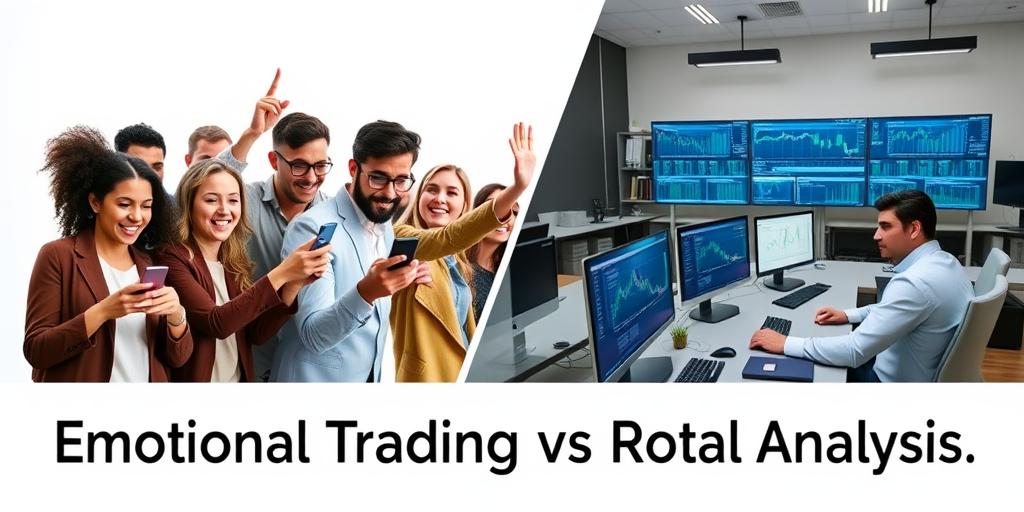Are Retail Investors More Prone to FOMO and Emotional Trades Than Professionals?
The stock market is often portrayed as a battleground where savvy professionals outmaneuver everyday retail investors. One common belief is that retail investors are more susceptible to the Fear Of Missing Out (FOMO) and emotional trading, leading to poorer investment outcomes. But is this really the case? Let's delve into the dynamics that influence both retail and professional investment decisions.
Understanding the Players
- Retail Investors: These are individual investors who buy and sell securities for their own accounts. They often have limited resources, rely on publicly available information, and may be influenced by market sentiment and social media trends.
- Professional Investors: These are individuals or firms who manage money on behalf of others. They include fund managers, analysts, and traders working for institutions like hedge funds, mutual funds, and pension funds. They have access to sophisticated tools, research, and expertise.
The Case for Retail Investors and Emotional Trading
Several factors suggest why retail investors might be more prone to FOMO and emotional trading:
- Limited Information: Retail investors often lack the in-depth research and analysis that professionals have. This can lead to decisions based on incomplete or biased information.
- Emotional Biases: Behavioral finance has identified numerous cognitive biases that can affect investment decisions. Retail investors may be more susceptible to biases like:
- Loss Aversion: The tendency to feel the pain of a loss more strongly than the pleasure of an equivalent gain.
- Confirmation Bias: Seeking out information that confirms existing beliefs, even if it's inaccurate.
- Herd Mentality: Following the crowd, even if it goes against rational analysis.
- Social Media Influence: The rise of social media has amplified the influence of online communities and influencers. Retail investors may be swayed by trending stocks or meme stocks, leading to irrational exuberance or panic selling.
- Short-Term Focus: Retail investors often have shorter investment horizons and may be more focused on immediate gains, leading to impulsive decisions.
The Professionals' Perspective
Professional investors are not immune to emotions, but they typically have mechanisms in place to mitigate their impact:
- Disciplined Strategies: Professionals often follow pre-defined investment strategies and risk management protocols.
- In-Depth Research: They conduct extensive research and analysis to make informed decisions.
- Team-Based Approach: Investment decisions are often made by committees, reducing the influence of individual biases.
- Performance Metrics: Professionals are judged on their long-term performance, encouraging them to focus on rational decision-making.
Evidence and Counterarguments
While the narrative suggests retail investors are more prone to emotional trading, some studies offer counterarguments:
- Improved Access to Information: Online brokerages and financial news outlets have made information more accessible to retail investors.
- Rise of Robo-Advisors: Robo-advisors use algorithms to create and manage investment portfolios, removing emotional decision-making.
- Long-Term Investing: Many retail investors are adopting long-term investing strategies, reducing the impact of short-term market fluctuations.
Conclusion
While retail investors may face greater challenges in overcoming emotional biases and accessing comprehensive information, the gap between retail and professional investors is narrowing. With increased access to information, improved investment tools, and a growing awareness of behavioral finance, retail investors are becoming more sophisticated and less prone to purely emotional trading. However, the potential for FOMO and emotional decisions remains a factor for all investors, regardless of their background or expertise. Understanding these influences is key to making rational and informed investment choices.









